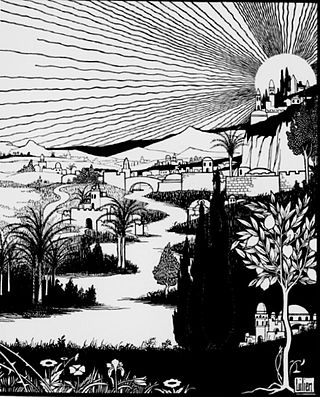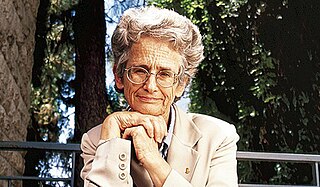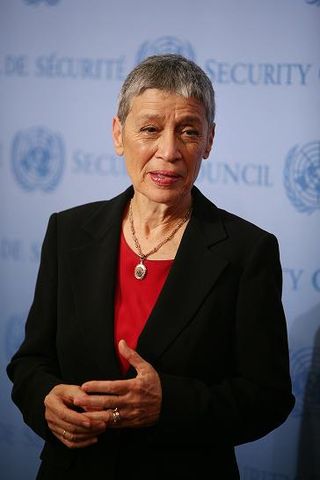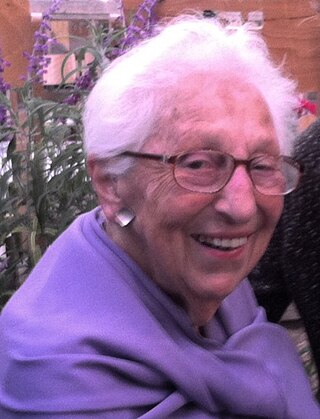
Jerusalem is a city in the Southern Levant, on a plateau in the Judaean Mountains between the Mediterranean and the Dead Sea. It is one of the oldest cities in the world, and is considered holy to the three major Abrahamic religions—Judaism, Christianity, and Islam. Both the State of Israel and the State of Palestine claim Jerusalem as their capital city. Israel maintains its primary governmental institutions there, and the State of Palestine ultimately foresees it as its seat of power. Neither claim is widely recognized internationally.

Messianic Judaism is a syncretic Abrahamist new religious movement or sect that considers itself Jewish. Many Jews and Jewish authority figures, both in the United States and Israel, consider it a part of Evangelical Christianity.

The Hebrew University of Jerusalem is a public research university based in Jerusalem, Israel. Co-founded by Albert Einstein and Chaim Weizmann in July 1918, the public university officially opened in April 1925. It is the second-oldest Israeli university, having been founded 30 years before the establishment of the State of Israel but six years after the older Technion university. The HUJI has three campuses in Jerusalem and one in Rehovot. Until 2023, the world's largest library for Jewish studies—the National Library of Israel—was located on its Edmond J. Safra campus in the Givat Ram neighbourhood of Jerusalem.

Zion is a placename in the Hebrew Bible, often used as a synonym for Jerusalem as well as for the Land of Israel as a whole.
LexisNexis is an American data analytics company headquartered in New York, New York. Its products are various databases that are accessed through online portals, including portals for computer-assisted legal research (CALR), newspaper search, and consumer information. During the 1970s, LexisNexis began to make legal and journalistic documents more accessible electronically. As of 2006, the company had the world's largest electronic database for legal and public-records–related information. The company is a subsidiary of RELX.
Jewish studies is an academic discipline centered on the study of Jews and Judaism. Jewish studies is interdisciplinary and combines aspects of history, Middle Eastern studies, Asian studies, Oriental studies, religious studies, archeology, sociology, languages, political science, area studies, women's studies, and ethnic studies. Jewish studies as a distinct field is mainly present at colleges and universities in North America.

David Novak, is a Jewish theologian, ethicist, and scholar of Jewish philosophy and law (Halakha). He is an ordained Conservative rabbi and holds the J. Richard and Dorothy Shiff Chair of Jewish Studies as Professor of the Study of Religion and Professor of Philosophy at the University of Toronto since 1997. His areas of interest are Jewish theology, Jewish ethics and biomedical ethics, political theory, and Jewish-Christian relations.

Menachem Elon (Hebrew: ) was an Israeli jurist and Professor of Law specializing in Mishpat Ivri, an Orthodox rabbi, and a prolific author on traditional Jewish law (Halakha). He was the head of the Jewish Law Institute of the Hebrew University of Jerusalem.
Chaim Menachem Rabin was a German, then British, and finally Israeli professor of Hebrew and Semitic languages.
Mordechai Halperin is an Israeli rabbi, physician and scientist. He is the chief officer of medical ethics for the Israeli Ministry of Health and director of the Falk Schlesinger Institute for Medical-Halachic Research in Jerusalem. He is also a member of the Bioethics Advisory Committee of the Israel Academy of Sciences and Humanities.

Ruth Gavison was an Israeli expert of human rights, professor of law at the Hebrew University of Jerusalem, and recipient of the Israel Prize.
Jody S. Ponsa-Kraus is a Patricia D. and R. Paul Yetter Professor of Law at Columbia Law School.

Nahum Slouschz was a Russian-born Israeli writer, translator and archaeologist. He was known for his studies of the "secret" Jews of Portugal and the history of the Jewish communities in North Africa, mostly, in Libya and Tunisia.

Gabriela Shalev is an Israeli jurist. She was the Israeli ambassador to the United Nations from 2008 to 2010.

Alice Shalvi was an Israeli professor and educator. She played a leading role in progressive Jewish education for girls and advancing the status of women.
Avigdor Victor Levontin was an Israeli lawyer.

Frances Raday is a professor emerita of Elias Lieberman Chair in Labor Law, Hebrew University of Jerusalem. Raday is currently a professor of law at the Haim Striks Law School at Colman College of Management Academic Studies, where she also acts as president of the Concord Center for Integration of International Law in Israel and as head of the school's graduate programs.
Danny Evron is the Executive Editor of the Israel Law Review. He is the Executive Director of The Minerva Center for Human Rights in the Faculty of Law at the Hebrew University of Jerusalem. He has also worked as a lawyer for the Conservative movement in Israel.

Levi Cooper is an Orthodox Jewish teacher, author, and community leader who lives in Tzur Hadassah, Israel. He is a faculty member of the Pardes Institute for Jewish Studies in Jerusalem, where he teaches Midrash, Talmud, Rambam, and Hasidism. Originally from Australia, Cooper lectures extensively on the topics of law and Halakha, Jewish spirituality and Hasidic thought. Since 1996, he has also served as a historian with Heritage Seminars. He has studied at Chabad, Yeshivat Sha'alvim, the Kollel at Bar-Ilan University and Beit Morasha.
David Kretzmer is an Israeli expert in international and constitutional law. He is professor emeritus of international law of the Hebrew University in Jerusalem and professor of law at the Transitional Justice Institute at the University of Ulster in Northern Ireland. He has been a member of international and Israeli Human Rights organizations, including the UN Human Rights Committee under the International Covenant on Civil and Political Rights, serving as its vice-chairperson in 2001 and 2002. He established the Centre for Human Rights at the Hebrew University of Jerusalem and was a founding member of the Association for Civil Rights in Israel, the Minerva Centre for Human Rights, a joint centre of the Hebrew University and Tel Aviv University. He is also a founding member of B'Tselem. Kretzmer is a member of the Israeli Law Professors' Forum for Democracy, established in 2023 to respond to the Israeli coalition's plans for changes in the legal system.












